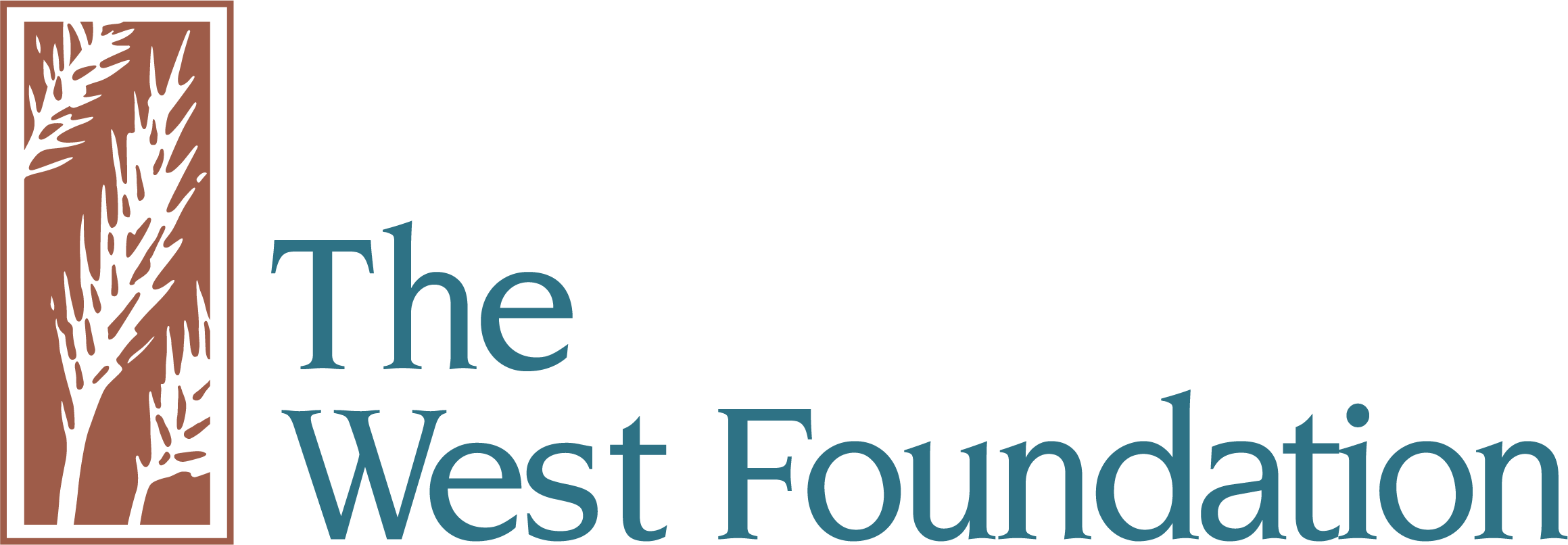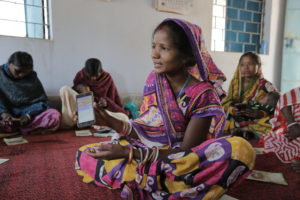Trickle Up: Meeting the demands of the future
Trickle Up helps people in extreme poverty and vulnerability advance their economic and social well-being. The organization drives large-scale change by partnering with governments, global institutions, and local organizations.
(From contributing writer Elena Szajewski, Senior Development Officer, Trickle Up)
Since our founding in 1979, we’ve helped more than one million people living in extreme poverty and vulnerability – women, people with disabilities, Indigenous people, refugees and youth – manage businesses, plan for the future, build confidence and mobilize their voices.
Through its generosity over the years, The West Foundation has provided Trickle Up critical funding helping tens of thousands of women build the skills, resources, and confidence they need to better sustain their lives and families.
In 2020, Trickle Up served 62,128 participants in eight countries, benefitting more than 300,000 people. We provide program design and implementation, technical assistance/capacity building to local partners and governments, and build evidence and expertise to share with our partners and peers.
The skills that Trickle Up fosters – managing a business, planning for the future, building confidence, mobilizing women’s voices within their households and communities – have never been more important. Despite a global lockdown, we mobilized our network to help participants adapt to the immediate effects of the pandemic and ensure they could access government and other relief programs – including for food, supplies, and other necessities.
Key adaptations to Covid-19
- Savings groups: By reducing the size of group meetings, holding meetings outdoors, introducing social distancing and encouraging preventative measures, many Trickle Up savings groups continued to meet and support one another during the crisis.
- Home gardens: Home gardens provide a critical lifeline while access to transportation is limited and markets are shut down. We helped participants identify high-nutrition foods to plant and adopt improved cultivation methods, even for those with little land. Participants also helped run community kitchens in India.
- Market assessments: We helped participants adapt during market disruptions by conducting market assessments and trainings on appropriate livelihoods for the current context. For example, as tourism halted and markets shut down in Guatemala, Trickle Up participants who made their living weaving scarves and traditional blouses pivoted to making masks for local sale.
- Digital technology: The pandemic both accelerated the development of existing digital tools, and catalyzed the creation of new ones. In appropriate contexts, we will continue expanding virtual trainings, and remote coaching and monitoring alongside more traditional face-to-face program implementation.
- Information: We reached 100% of our participants with Covid messaging, helping translate and adapt public health information into 16 local languages to better serve indigenous participants.
What work lies ahead?
Reaching vulnerable populations and helping them build sustainable and resilient livelihoods has been Trickle Up’s core purpose since 1979. In late 2020 and early 2021, Trickle Up’s staff and board engaged in strategy process to identify how we can build upon our strengths in order to adapt to the longer-term impacts of the pandemic and broad trends that are driving the international development sector. Among our major conclusions:
Integrating climate change resilience
Teaching climate change resilience through adaptations like crop diversification has been part of many Trickle Up projects for years. We now aim to add a climate-change adaptation and mitigation component to Trickle Up’s core Graduation programs in order to increase sustainable program impact, attract new funding sources, and position Trickle Up as a leader in climate adaptation in livelihood programming. In the next year, we plan to identify specific program adaptations for each of our program units (Asia, Americas, and Refugee Affairs), prospect for climate-change resilience global/local partners and funders, and share our expertise with partners and funders.
Expanding digital pathways out of poverty
Social distancing requirements posed by the pandemic have made clear that now is the time to accelerate the development of our digital tools. We will expand their utility, increase our understanding of user experience and adoption, improve utilization of monitoring and evaluation data, and improve scalability within Trickle Up and beyond. Current digital projects include:
- Uganda: Trickle Up is developing a pilot project putting digital livelihood tools, customized for local context and languages, into the hands of 2,200 refugee and host-community participants. Trickle Up will work in collaboration with AVSI, a development and humanitarian organization, to design and deliver digital skills trainings and tools to frontline staff.
- Odisha (one of India’s highest poverty areas): We’re building upon our work with digital tools in order to support women’s agricultural livelihoods and improve coordinated marketing of their products.
- Mexico and Guatemala: Trickle Up is refining our coaching app that covers topics from self-esteem and leadership, to rights of women, indigenous people and people with disabilities, to livelihood planning and accounting, and growing nutritional gardens. We are also developing engaging online trainings for coaches to help ensure quality at scale.
- India: In the third phase of our partnership with Tata Communications, we are expanding the MPOWERED app to cover additional crops, three types of livestock, and three small-business models.
Post-Graduation opportunities
To better support our participants on their journey out of poverty, we will begin building pathways for Trickle Up participants to continue their economic and social progress after completing our 2-3 year Graduation program. A new program in India will enable 1,000 Trickle Up participants to join Farmer Interest Groups, a steppingstone to becoming part of formal coops – in order to generate greater economic returns. This will be an important avenue for Trickle Up to help participants advance past their initial Graduation phase.
Scale partnerships
Building upon our current “We Go Further” strategic framework, adopted in 2019, we will deepen and expand our partnerships at state and national levels, and with key scale partners and articulate and act upon key “levers” for change to influence practices, policies and investments. In the next year, we plan to pursue expanded relationships with several governments and INGOs.
***
We are incredibly grateful for The West Foundation’s critical support in advancing these and other initiatives. Our work has never been more urgent, and we are glad to have such strong partnerships, so that we can reach our goals, together.

